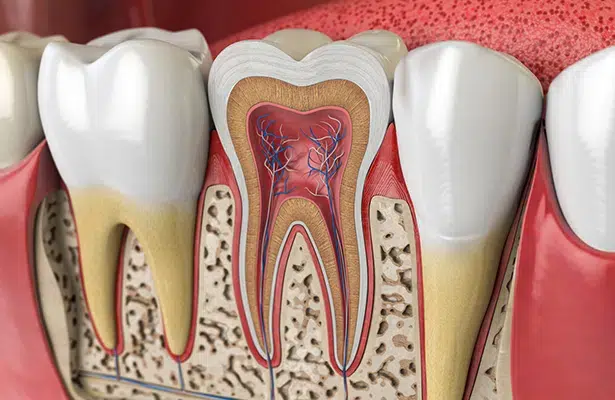Same Day Emergency Appointments Available!

The Crucial Role of Root Canal in Union, NJ in Fighting Tooth Infections
What is a root canal?
Root Canal Symptoms
- Severe and intense toothaches that won’t go away
- Sensitivity to hot and cold foods and drinks
- Swollen and tender lymph nodes
- Recurring abscesses on the gums
How is root canal treatment performed?
How long does the pain from a root canal last?
There is a common misconception that root canals are very painful. The truth is, the root canal procedure itself isn’t usually any more painful than a tooth filling. Dentists typically provide an anesthetic before the procedure so during and a short while after there isn’t a huge amount of discomfort.
After the procedure, some sensitivity and discomfort is common while the area around the root canal heals. Gums can become swollen or agitated during the procedure, resulting in mild pain or sensitivity. Pain and sensitivity should subside when the tooth is healed. After your treatment, your dentist will provide you with special instructions on how to care for your newly treated tooth.
What are alternatives to root canal treatment?
Most people facing root canal treatment are curious as to whether there are alternative procedures worth considering. Since endodontic therapy is considered a “last line of defense” for restoring your tooth, the only remaining options are to have your tooth extracted or wait until you’re in pain and have it removed at a later date. Unfortunately, with either of these options, you risk the infection spreading deeper into your face or adjacent teeth. Getting a root canal is the best possible solution.
If you opt to have your tooth extracted, there’s still the concern of replacing it as soon as possible. Otherwise, the extra space in your bite can throw off the alignment of your surrounding teeth. Two of the more common replacement options include a dental bridge or implant.
Why Do Most People Need a Root Canal?
New Patients & Emergency Appointments Welcome!
